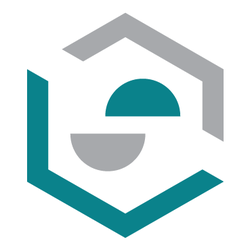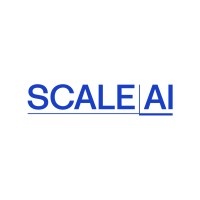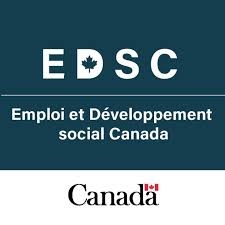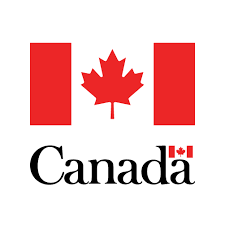
FCI — Fonds des leaders John-R.-Evans
En résumé
- Montant maximum : 800,000 $
- Jusqu'à 30% du coût du projet
- Date d'ouverture : October 15, 2024
- Date de fermeture : March 15, 2025
- Services professionnels, scientifiques et techniques
- Services d'enseignement
- Soins de santé et assistance sociale
- Canada
- Toutes les structures légales
- Toutes les échelles de revenus
- Toutes les tailles d’organisation
- Tous les groupes
Aperçu
The John R. Evans Leaders Fund (JELF) by the Canada Foundation for Innovation is designed to help Canadian research institutions attract and retain top-tier researchers by providing necessary foundational research infrastructure. Eligible activities include the acquisition or development of high-usage equipment and the upgrade or replacement of aging infrastructure to support innovative research and technology development.
Activités financées
Cette subvention finance des projets qui visent à doter les chercheurs et les institutions académiques au Canada des infrastructures nécessaires pour maintenir une compétitivité internationale en matière de recherche. Les activités éligibles comprennent l'acquisition, le développement et l'optimisation des infrastructures de recherche.
- Acquisition d'équipements de haute technologie pour renforcer la capacité de recherche.
- Mise à niveau ou remplacement des infrastructures vieillissantes pour soutenir des recherches innovantes.
- Aménagement d'installations de recherche spécialisées adaptées aux besoins des chercheurs éminents.
- Promotion de projets interinstitutionnels pour favoriser le partage et la durabilité des infrastructures de recherche.
Admissibilité
Les critères d'admissibilité pour cette subvention sont déterminés par des exigences spécifiques liées aux institutions et aux chercheurs impliqués.
- Les universités canadiennes reconnues comme admissibles par la FCI doivent avoir reçu un financement des trois agences fédérales de recherche au cours des trois dernières années.
- Les chercheurs doivent être des membres actuels du corps professoral avec des postes académiques à temps plein ou être des candidats que l'université est en train de recruter pour des postes académiques à temps plein dans un secteur stratégique important.
- Jusqu'à trois chercheurs peuvent être inscrits sur la proposition.
- Les projets d'infrastructure doivent viser l'acquisition ou le développement pour augmenter la capacité de recherche et permettre des activités de recherche innovantes.
Qui est admissible?
Ce fonds est destiné principalement à aider les institutions canadiennes reconnues qui souhaitent attirer et retenir les chercheurs de pointe en leur fournissant les infrastructures de recherche nécessaires. Les types d'organisations éligibles sont principalement des institutions académiques.
Dépenses admissibles
La subvention John R. Evans Leaders Fund permet de financer l'acquisition ou le développement d'infrastructures de recherche essentielles pour augmenter la capacité de recherche et permettre des activités de recherche innovantes dans des domaines prioritaires pour les institutions. Les projets doivent souligner l'excellence et le leadership des chercheurs et être justifiés par leur utilité et durabilité pour le Canada.
- Acquisition d'équipements de recherche à fort usage pour soutenir des activités innovantes.
- Mise à niveau ou remplacement d'infrastructures vieillissantes pour maintenir la compétitivité institutionnelle.
- Construction ou rénovation d'espaces de recherche pour accueillir de nouvelles technologies.
- Projets mettant l'accent sur des collaborations interinstitutionnelles pour une utilisation optimale des ressources.
Zone géographique admissible
La subvention du Fonds des leaders John-R.-Evans de la Fondation canadienne pour l'innovation n'est pas associée à une région géographique spécifique. Elle est disponible pour les institutions éligibles à travers le Canada.
Critères de sélection
L’évaluation et la sélection des projets pour la subvention John R. Evans Leaders Fund se basent sur des critères rigoureux pour assurer la pertinence et l'impact des projets proposés.
- Recherche ou développement technologique : Les activités de recherche ou de développement technologique doivent être innovantes, faisables et répondre aux normes internationales.
- Infrastructure : L'infrastructure doit être nécessaire et appropriée pour mener les activités de recherche ou de développement technologique.
- Rechercheurs : Les chercheurs doivent démontrer une excellence et un leadership approprié pour le niveau de leur carrière et avoir l'expertise ou les collaborations pertinentes.
- Soutenabilité : L'infrastructure doit être utilisée de manière optimale et durable grâce à des engagements tangibles et appropriés sur sa durée de vie utile.
- Bénéfices pour les Canadiens : Les résultats de la recherche ou du développement technologique doivent être transférés par des voies appropriées aux utilisateurs potentiels et générer des bénéfices sociaux, de santé, environnementaux et/ou économiques pour les Canadiens.
Comment appliquer
Consult Internal Research Office
Check Eligibility
Prepare Proposal
- Create a CAMS account for all listed researchers and agree to participation.
- Prepare a proposal addressing assessment criteria: Research or Technology Development, Infrastructure, Researchers, Sustainability, and Benefits to Canadians.
- Draft the "Plain language summary" and justify the need for infrastructure.
- Complete all sections of the Project Module and assess the Financial resources needed.
Use of CAMS System
- Begin the application in the CFI Awards Management System (CAMS).
- Select “John R. Evans Leaders Fund – Funding for research infrastructure” in CAMS.
Compliance with Guidelines
Submit Suggested Reviewers
Submit Application
- Review the completed proposal for completeness and compliance.
- Submit the proposal electronically through CAMS by the appropriate deadline (February 15, June 15, or October 15).
Confirmation of Receipt
Informations supplémentaires
The John R. Evans Leaders Fund encourages institutions to develop multi-institutional projects and submit proposals through the CFI Awards Management System (CAMS).
- Eligible institutions include Canadian universities with dedicated JELF allocations based on funding from federal research agencies.
- Research hospitals and research institutes must apply through their affiliated university.
- Proposals can request up to $800,000 from the CFI with a maximum total eligible cost of $2 million.
- Projects should be finalized within nine months of funding decisions and completed within a reasonable timeframe.
- Proposals including advanced research computing infrastructure costing more than $100,000 must consult the Digital Research Alliance of Canada.
- Institutions must provide a management plan for the operation and maintenance (O&M) of the infrastructure over its useful life.
- Financial resources for O&M are captured for the first five years post-implementation, with support from the Infrastructure Operating Fund (IOF).
- Funding decisions are made by the CFI Board of Directors based on recommendations from expert reviewers and/or committees.
Contacts
Questions fréquentes sur le programme FCI — Fonds des leaders John-R.-Evans
Qu'est que le FCI — Fonds des leaders John-R.-Evans?
Quel est le montant de l'aide financière qui peut être reçue?
Quelle est la date limite pour appliquer?
Qui est admissible au programme FCI — Fonds des leaders John-R.-Evans ?
Quelles dépenses sont admissibles pour FCI — Fonds des leaders John-R.-Evans?
Qui puis-je contacter pour plus d'informations sur le FCI — Fonds des leaders John-R.-Evans?
Où le programme FCI — Fonds des leaders John-R.-Evans est-il disponible ?
D’autre aides financières de ce type

Programme d'aide à la recherche industrielle (PARI) – AI Assist
Conseil national de recherches Canada (CNRC)
Fonds stratégique pour l'innovation (FSI)
Innovation, Sciences et Développement économique Canada (ISDE)
Grappe des chaînes d'approvisionnement axées sur l'IA (Scale AI)
Global Innovation Clusters (GIC)
Programme d’aide à la recherche industrielle (PARI) — Programme emploi jeunesse
Conseil national de recherches Canada (CNRC)
Soutien du PARI CNRC – Technologies propres
Conseil national de recherches Canada (CNRC)
Mitacs Accélération
Mitacs
Service Jeunesse Canada – Volet régional Occasions de bénévolat
Emploi et Développement social Canada (EDSC)
ISDE — Intelligence artificielle (IA)
Innovation, Sciences et Développement économique Canada (ISDE)
Grappes d’innovation mondiales
Innovation Canada